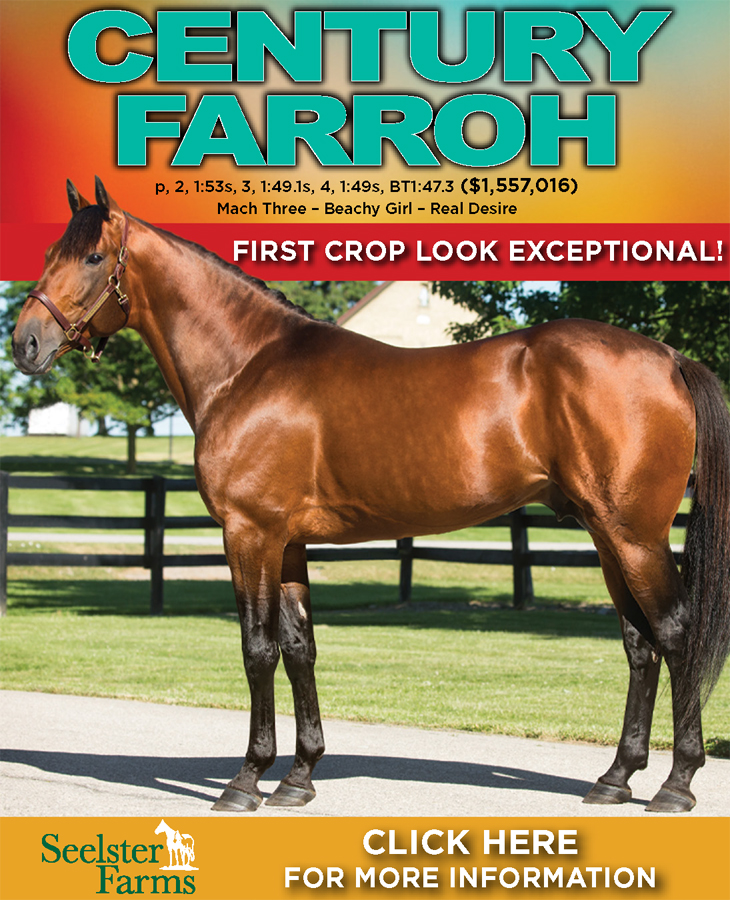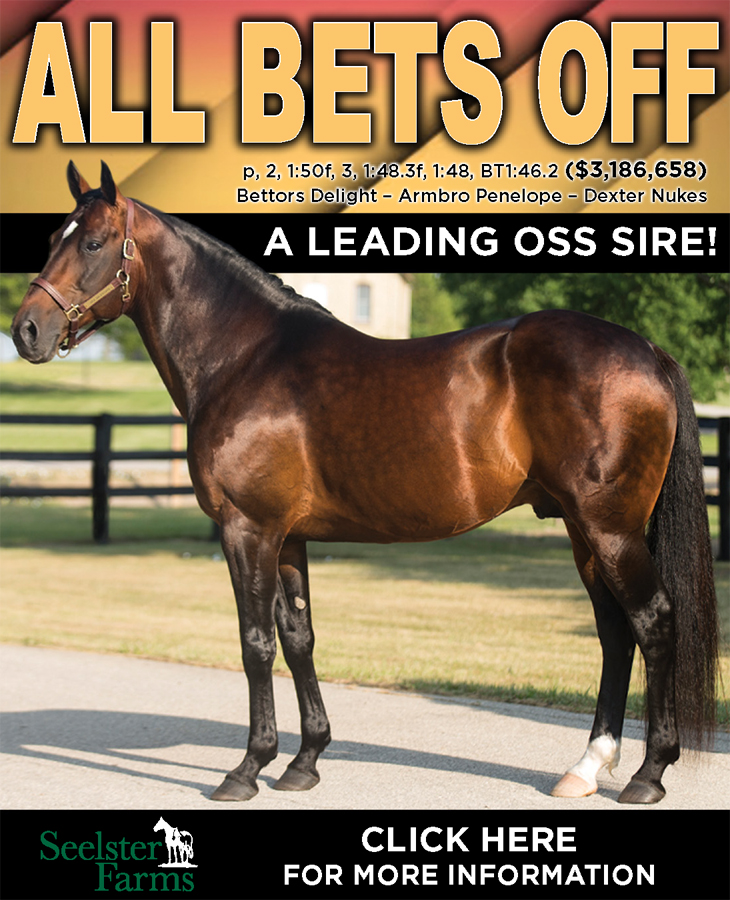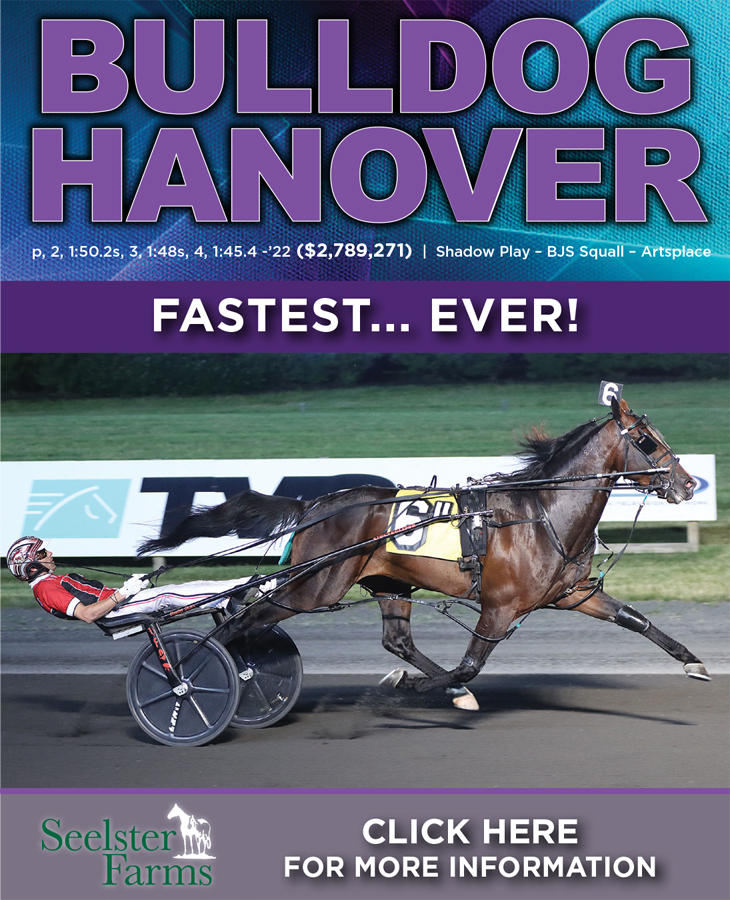

Racing returns to DuQuoin
The former home of the Hambletonian and World Trotting Derby will play host to non-betting races in 2023.
by Neil Milbert
Now that corporate owner Churchill Downs, Inc. has sold Arlington International Racecourse to the Chicago Bears and the football team has begun demolition of the world-renowned thoroughbred palace in preparation for redevelopment of the property, the DuQuoin State Fairgrounds has the distinction of being the Illinois racetrack with the richest tradition.
DuQuoin played host to the Hambletonian from 1957 through 1980 and after harness racing’s premier event was moved to The Meadowlands in 1981, it was replaced by the lucrative and prestigious World Trotting Derby, which also showcased the biggest names in the sport until it was discontinued in 2010 as a consequence of the state’s budget crisis.
These days, Illinois racing is a far cry from what it once was and the DuQuoin Fairgrounds has taken on a new role. This month, the DuQuoin Fairgrounds joined the State Fairgrounds in Springfield in holding non-betting racing programs twice weekly to prepare horses for the state’s only extended pari-mutuel harness meeting at Hawthorne Race Course: 49 nights of racing from Sept. 15-Dec. 31.
Because of the cessation of racing at Arlington after its 2021 meeting the only racetrack in the Chicago metropolitan area is Hawthorne and it is accommodating both the thoroughbreds and harness horses.
Last year, the season was split into two segments for each breed but his year the time-sharing arrangement calls for an uninterrupted 68-day thoroughbred meeting from March 5-Sept. 4 followed by the continuous harness meeting.
With the money coming from the Hawthorne purse account, the twice-weekly summer racing program was inaugurated at Springfield in 2022 and this year DuQuoin is getting involved on a limited basis. The first of three programs there was held on June 9 and the next two are scheduled for June 30 and July 1.
Tim Norman, the Illinois Department of Agriculture bureau chief who oversees the harness and thoroughbred breeding programs, encouraged the ITHA to make DuQuoin part of the summer program.
“We want to do whatever we can to expose harness racing,” he said. “Foal numbers are down [because of the shortage of pari-mutuel opportunities].”
Springfield’s non-betting races were scheduled to continue on June 15, 16, 22 and 23 and July 6, 7, 13, 14, 20, 21, 27 and 28 for a total of 12 programs.
They will be followed by the annual pari-mutuel mini-meetings at Springfield on Aug. 10, 11, 12, 16 and 17 during the Illinois State Fair and on Aug. 28, 29 and 30 at the DuQuoin State Fair.
“We’re excited to have racing dates for the summer at Springfield and DuQuoin,” said Tony Somone, executive director of the Illinois Harness Horsemen’s Association (IHHA). “Racing opportunities are limited and we’ve got to make the money when we can. It keeps us going and we’ll be ready for Hawthorne in the fall. It’s hard work in Illinois right now and this is what we’ve got to do to stay alive [financially].
“DuQuoin historically has been a great area for harness racing with roots in the sport and we feel it’s important to race a little bit there.”
The June 9 card at DuQuoin consisted of 13 races with field sizes ranging from five to nine horses. There were 92 entrants and four horses on the also-eligible list.
The state’s two brightest stars — the 8-year-old gelding pacer Fox Valley Gemini and the 9-year-old trotting mare Annas Lucky Star — were the marquee horses and both put on winning performances.
Hawthorne’s Night of Champions is the main event in Illinois racing and last fall Fox Valley Gemini won a championship race for the sixth straight year, while Annas Lucky Star, who holds the Hawthorne track record for older mares, also was victorious in a championship race en route to earning a year-end Illinois conceived and foaled award for the seventh consecutive year.
After winning his first two races this year Fox Valley Gemini defeated six adversaries in the third race on the DuQuoin card and in the second race Annas Lucky Star outdid four opponents — three of them males — in recording her second triumph in four starts.
Casey Leonard drove Fox Valley Gemini for owner Jim Ballinger and his father, Terry Leonard, winner of four of the last six trainer titles at Hawthorne.
Annas Lucky Star is owned by her breeder, Danny Graham, trained by trotting virtuoso Nelson Willis and was driven by Juan Franco.
In addition to Casey Leonard and Willis among the other Chicago circuit brand names who came to DuQuoin were defending Hawthorne trainer champion Amy Husted and her driver husband, Kyle Husted, and trainers Steve Searle, Travis Seekman, Erv Miller and Mike Brink.
“We have 20 horses in training,” Casey said. “I’ve just been driving in Illinois this year. Last fall [after the Hawthorne meeting] I went to [Harrah’s] Hoosier [Park] in October and I drove there a little bit in November. It’s a long ship for us [from Terry Leonard’s farm in northern Illinois] to DuQuoin — 5 1/2 – 6 hours — so that makes it a bit of a challenge and definitely different than what we’re used to. But don’t get me wrong, it’s nice to be racing; I appreciate the dates that we have.
“DuQuoin is a track with big sweeping turns. It’s got a lot of clay in it and that’s nice for the horses. The biggest difference between DuQuoin and Springfield is at DuQuoin you’re right into the first turn whereas at Springfield it seems like you have quite a way to go.”
IHHA President Marty Engel said he’s hoping for 10-race programs on all of the remaining non-betting racing days at the two tracks.
“Hawthorne is limiting us to $65,000 a card,” Engel said.
According to Willis, who has 14 horses in training, it’s hard to make money.
“The maiden races at Springfield are going for $4,500 and if you don’t win, you’re going to lose money and in the open races that are going for $8,500 if you aren’t fifth or better, you’ll lose money after you factor in the shipping costs and your other expenses,” Willis said.
Springfield is 173 miles from Hawthorne and DuQuoin is 276. The distance between Springfield and DuQuoin is 124 miles.
“We raced for more money in the ’70s and ’80s [when there were four Chicago-area harness tracks] than we’ll be racing for at Hawthorne this fall and today it takes about three times as much to take care of a horse,” Willis said. “If something doesn’t get done with a casino at Hawthorne or if another track [offering casino gambling to subsidize purses] isn’t allowed to open, harness racing will be done for in Illinois and thoroughbred racing will go down with us.”
Greenway Entertainment Group has made initial plans for a $300 million racino on an 80-acre site in south suburban Richton Park but there’s a statutory roadblock; a track within 35 miles of an existing track is banned under the Racing Act, and the proposed track falls inside that boundary so it would need Hawthorne’s approval and that’s not about to happen.
An attempt to revise the statute was unsuccessful during the spring session of the legislature but Engel belies that there’s a good chance that a bill will be submitted and approved during the fall veto session.
While Illinois racing is struggling to survive racino-subsidized racing is thriving next door in Indiana.
Kyle Wilfong, who dethroned Casey Leonard as the champion driver at the 2022 Hawthorne harness meeting that ended in September, now is based in Indiana along with his trainer father, Brett Wilfong.
“We’re about 10 minutes away from Hoosier and I’ll be trying to stay there and drive,” Kyle said. “I have to be where I can drive five days a week for nine months a year. It’s a long hike to Springfield for overnight races and it’s tough to get away from Hoosier but I’ll be there a little bit for the stakes races. When Hawthorne opens, I’ll definitely be there for the stakes races and on Sundays. If I don’t get put up on a lot of other horses on stakes days I’ll understand because I haven’t been there much.
“Illinois is where I wanted to be and I was hoping after that bill [legalizing casinos at the state’s racetracks] was passed [in 2020] I had my hopes up. Every year at Hawthorne they kept saying it was going to happen but nothing has happened and there comes a time when you can’t keep waiting.”
Hawthorne’s original plans called for a $400 million racino to open in 2021. Preliminary approval was given by the Illinois Gaming Board and portions of the clubhouse and grandstand were demolished.
However, a combination of inflation, supply chain issues and high interest rates have compounded Hawthorne’s financing problems and the only indication that a racino eventually may be constructed is the demolition work that remains in evidence and in limbo.














